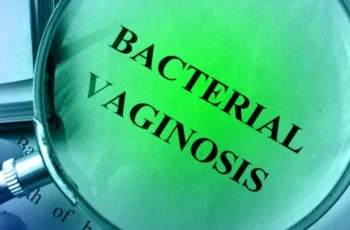Ad Blocker Detected
Our website is made possible by displaying online advertisements to our visitors. Please consider supporting us by disabling your ad blocker.
Hairy Cell Leukemia (HCL), a rare, slow-progressing form of leukemia originating in the lymphatic system, often allows patients to delay immediate treatment in favor of watchful waiting. This unique characteristic provides an opportunity to focus on integrative wellness, particularly through nutrition. Emerging research underscores the critical role of a nutrient-dense diet in supporting immune function, reducing inflammation, and enhancing overall well-being for HCL patients. By prioritizing balanced, plant-based eating and collaborating with healthcare professionals, individuals can empower themselves to navigate the challenges of this condition.

Understanding Hairy Cell Leukemia and Its Implications
HCL is characterized by the abnormal growth of B-cells, a type of white blood cell, in the bone marrow and spleen, leading to symptoms like fatigue, infections, and an enlarged spleen. Its slow progression often means treatment, such as chemotherapy or immunotherapy, is not immediately necessary, giving patients time to adopt supportive lifestyle changes. Nutrition, in particular, plays a pivotal role in bolstering the immune system, which is essential for managing HCL and improving resilience against infections and disease progression.
A well-planned diet can also help mitigate the side effects of eventual treatments and support the body’s ability to cope with the disease. By focusing on nutrient-rich foods, HCL patients can enhance their quality of life, maintain energy levels, and potentially improve treatment outcomes when intervention becomes necessary.
The Power of a Nutrient-Dense, Plant-Based Diet
A plant-based diet rich in colorful vegetables, whole grains, legumes, nuts, and seeds is highly recommended for HCL patients. These foods provide essential vitamins (like C and E), minerals (such as zinc and selenium), and antioxidants that combat oxidative stress and inflammation, both of which are linked to cancer progression. Leafy greens, berries, cruciferous vegetables (e.g., broccoli, kale), and whole grains like quinoa and brown rice deliver a spectrum of nutrients that support immune health and cellular repair.
Fiber, a cornerstone of plant-based eating, is particularly important, with a daily target of over 30 grams to promote gut health. A healthy gut microbiome, supported by fiber-rich foods and fermented options like yogurt, kefir, or sauerkraut, is crucial for immune function and may enhance the efficacy of cancer treatments. Diverse plant proteins from legumes, nuts, and seeds provide amino acids for tissue repair and immune support, while minimizing reliance on processed or red meats, which may increase inflammation.
Managing Treatment Side Effects Through Nutrition
When HCL progresses and requires treatments like chemotherapy, patients often face side effects such as nausea, loss of appetite, altered taste, and fatigue. These can make maintaining adequate nutrition challenging, yet proper nourishment is critical for sustaining strength and supporting recovery. Nutritional strategies tailored to these challenges include:
- Small, frequent meals: Eating smaller portions throughout the day helps manage nausea and maintain calorie intake.
- Calorie- and protein-rich foods: Nutrient-dense options like smoothies, nut butters, and eggs provide energy and support muscle maintenance.
- Blended or soft foods: Soups, purees, and mashed vegetables are easier to consume when appetite or swallowing is affected.
- Mild flavors: Avoiding strong spices or acidic foods can reduce discomfort for those with altered taste or mouth sores.
Hydration is equally important, as treatments can lead to dehydration. Sipping water, herbal teas, or electrolyte-rich drinks can help maintain fluid balance. Consulting a dietician can ensure these strategies align with individual needs and treatment plans.
The Role of the Gut Microbiome in HCL Management
The gut microbiome, a complex community of microorganisms in the digestive tract, plays a significant role in immune regulation and overall health. For HCL patients, a balanced microbiome may enhance treatment efficacy and reduce complications. Diets rich in prebiotics (found in foods like garlic, onions, and bananas) and probiotics (from fermented foods) foster a diverse microbial environment, which supports immune defenses and reduces inflammation. Avoiding processed foods, excessive sugars, and artificial additives helps maintain gut health, further empowering the body to cope with HCL.
Collaboration with Healthcare Professionals
Effective dietary management for HCL requires collaboration with a multidisciplinary healthcare team, including oncologists, dieticians, and nutritionists. These professionals can assess a patient’s symptoms, medical history, and treatment regimen to create a personalized nutrition plan. For instance, patients undergoing chemotherapy may need higher protein intake to support tissue repair, while those in watchful waiting may focus on preventive nutrition to bolster immunity. Regular consultations ensure dietary adjustments align with changing health needs and treatment phases.
Patients should also communicate their dietary preferences and cultural practices to ensure the plan is sustainable and enjoyable. For example, incorporating familiar foods like lentils or whole-grain breads can make adherence easier while meeting nutritional goals. Open dialogue with healthcare providers fosters a holistic approach, integrating evidence-based nutrition with medical care.
Complementary Lifestyle Practices
Beyond diet, lifestyle factors like regular physical activity, stress management, and adequate sleep complement nutritional efforts. Gentle exercise, such as walking or yoga, can boost energy and immune function, while mindfulness practices reduce stress, which may exacerbate symptoms. Avoiding smoking and limiting alcohol further support overall health and reduce cancer-related risks.

Empowering HCL Patients Through Nutrition
For individuals with Hairy Cell Leukemia, nutrition is more than sustenance—it’s a proactive tool for supporting the body and mind. A nutrient-dense, plant-based diet, combined with tailored strategies to manage treatment side effects, empowers patients to take control of their health. By working closely with healthcare professionals and adopting holistic wellness practices, HCL patients can enhance their resilience, improve their quality of life, and navigate the uncertainties of this rare cancer with confidence.
Embracing a nutrient-rich diet and integrative care is a powerful step toward better health outcomes. For HCL patients, every meal is an opportunity to support their body’s fight against disease, fostering hope and strength on their wellness journey.



